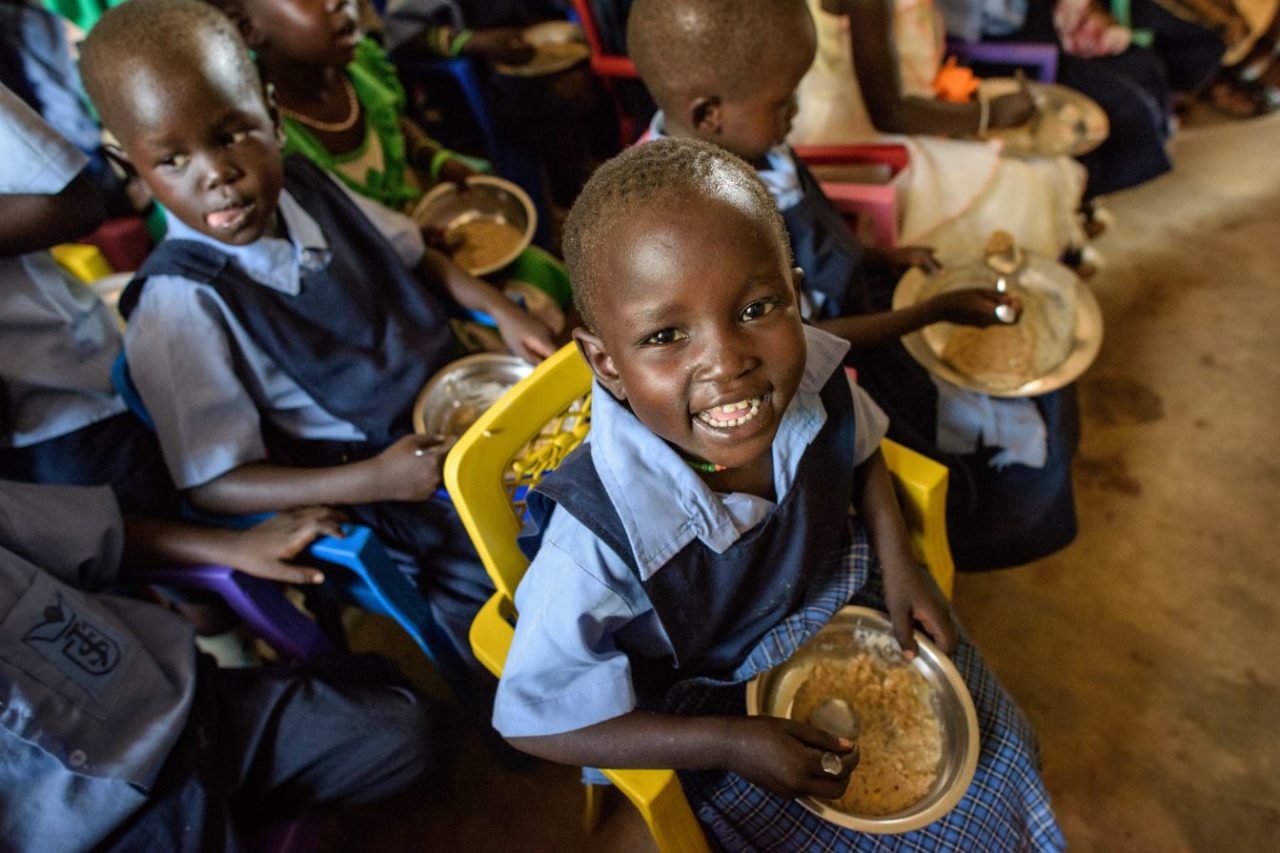World Vision Reaches People in Conflict-Affected Areas of South Sudan
Media Contact :
October 26, 2015
Senior Public Relations Manager
[email protected]
m 202-679-1620
Media Contact :
October 26, 2015
Senior Public Relations Manager
[email protected]
m 202-679-1620

JUBA, South Sudan (October 23, 2015) — A new report finds that South Sudan is balancing on the edge of another food crisis. The Integrated Food Security Report (IPC) is urging “immediate humanitarian action” to prevent catastrophe. This concerning news comes as World Vision reports it has finally been able to reach conflict areas in Upper Nile state to distribute food in an effort to stem this growing food crisis.
“In Melut, a town that was almost completely razed and deserted in May, people are beginning to return despite a continuously strong military presence,” said Perry Mansfield, World Vision’s National Director in South Sudan.
In Kodok, World Vision targets children under five with a specialized feeding program in order to reduce the rates of malnutrition, and in surrounding areas, the aid agency has distributed food to many who had fled conflict in recent months.
“Since August, World Vision has distributed food to over 32,000 people in Melut and Kodok towns in Upper Nile. We are the only organization addressing the food shortage in these areas,” said Mansfield. “We know that the most critical needs are food and water and we have been doing our best to meet these needs.”
The IPC report states that, “South Sudan’s food and nutrition crisis could spread to beyond conflict-affected states,” and World Vision has seen evidence of this in other parts of South Sudan.
“It’s not only the conflict-affected areas that we are concerned about. People we meet across the country are reporting less rain and late rains. Some say that their harvest will only last a few months. Even the Equatorian states, where food is usually abundant, South Sudanese are reporting alarmingly low harvests,” said Mansfield.
Awel Adang is a mother to six children and lives in Twic County in the northeast of South Sudan. She told World Vision that last year, the conflict had prevented her from planting. This year, although she had planted a sorghum crop, the rain came late and wasn’t enough. “The sorghum will last three, maybe four months. After that, I don’t know what I will do,” she said.
“The harvest in South Sudan will be lean this year and we don’t know how long it will last,” said Mansfield. “We have projects across a number of states that try to help people increase their crop yields so that they aren’t dependent on food aid, but the weather and the economic situation are huge setbacks for farmers who are trying to grow enough to feed their families,” he said.
###
To schedule an interview with World Vision’s National Director in South Sudan, please contact: Brian P. Duss 202.679.1620
About World Vision:
World Vision is a Christian humanitarian organization conducting relief, development, and advocacy activities in its work with children, families, and their communities in nearly 100 countries to help them reach their full potential by tackling the causes of poverty and injustice. World Vision serves all people regardless of religion, race, ethnicity, or gender. For more information, please visit www.WorldVision.org/media-center/ or on Twitter @WorldVisionUSA.